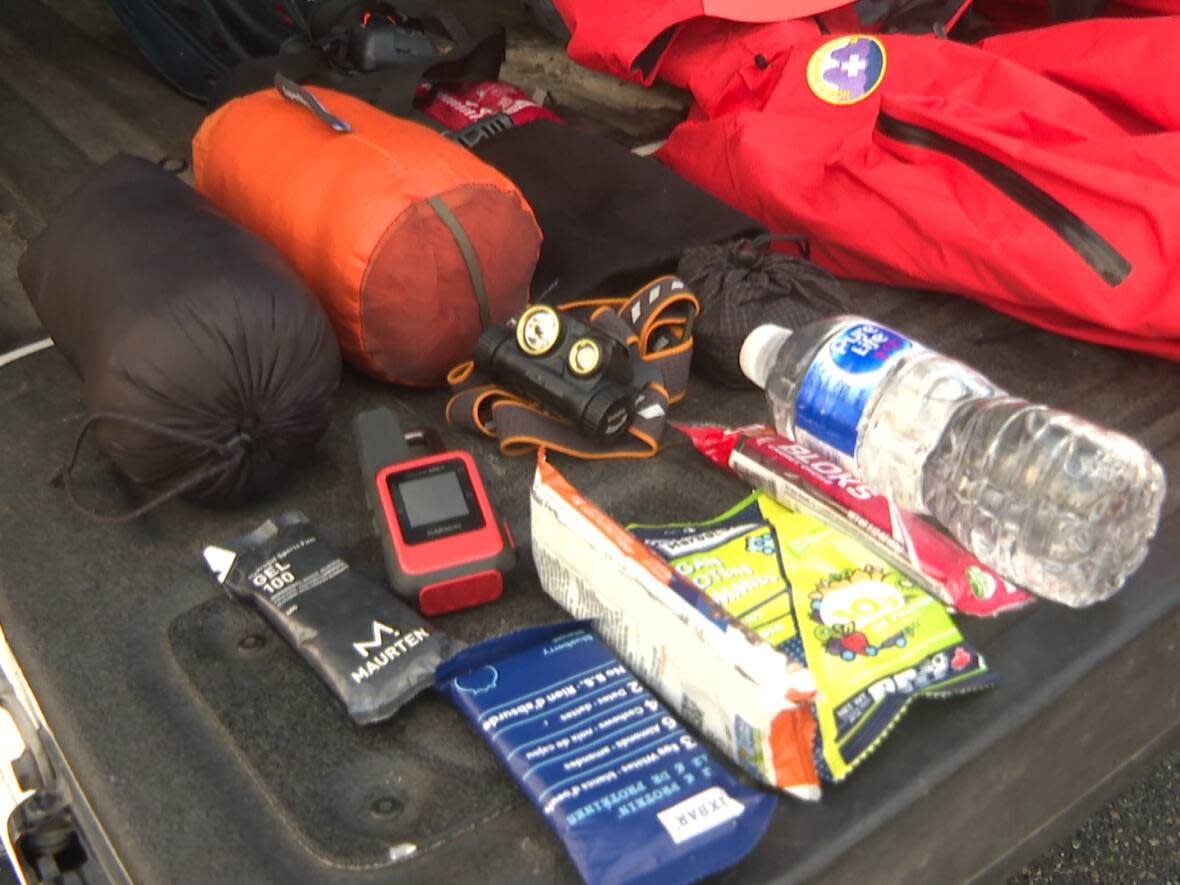B.C. Search and Rescue Association says 10 essentials are still essential

For years the B.C. Search and Rescue Association (BCSARA) has preached carrying 10 essential items for people heading into the mountains for a hike, going camping or for outdoor activities.
That is, don't leave home without a light, a signalling device, fire starter, warm clothes, a pocketknife, shelter, water and food, first-aid kit, and a compass or GPS and a cellphone.
So when the Backpacker blog posted a story referencing a study that questioned the science behind the list of essentials, published in 2021 by American hiker and mountaineer Nicholas Daniel, there was a strong reaction from B.C.'s search and rescue community — both over how widely the article is being shared and the methodology of the research.
"We have to get on top of it really quick and try to make people understand that the essentials will save your life," Dwight Yochim, BCSARA's senior manager.
Both BCSARA and North Shore Rescue recently posted rebukes of the study on their social media pages and are worried the information continues to proliferate online.
The research in question is a cross-sectional survey Daniel conducted at Mount Monadnock in New Hampshire, U.S. He offered adults finishing a day hike a granola bar if they answered questions about what they brought with them, adverse events they experienced, how satisfied they were with their hike and how prepared they felt when they dealt with rain, fatigue, hunger, getting lost or being injured.
Daniel surveyed 961 people, concluded that carrying more items did not translate into improved satisfaction for day hikers, and found that six of the 10 items on the essentials list were used infrequently.

Yochim says the BCSARA uses rescue data and scientific research from around 1,700 rescues a year to guide its works. It disputes the study's claim that the list of essential isn't backed by science.
"We use our own information to help us with our prevention program. Some of the top reasons people go missing — 50 per cent aren't injured and of that, 25 per cent didn't have a navigational aid," he said, adding that 10 per cent of people rescued were trapped by darkness because they didn't bring a proper flashlight.
"A lot of the subjects we are looking for are subjects who didn't bring the essentials to help them."
Yochim maintains it's better to have it and not need it than to need it and not have it.
"It's like asking someone who came back from a car ride, 'did you need your seatbelt or your air bag?'" he said.
"Those 10 essentials aren't for your safety on a trip that nothing happens. It's for when your trip goes sideways ... [they will] keep you warm, dry, safe and make sure you're not in worse condition than when you called us."
Rescue associations in B.C. also want people to think about seasonal preparation such as carrying warmer clothes during fall and winter trips, a tarp or other form of protection from the elements during the rainier months, and checking the forecast before heading out.

Mike Danks, team leader for North Shore Rescue, says anyone going into the backcountry during the winter should also bring avalanche safety gear, and carry a probe, transceiver and a shovel.
CBC News asked Danks how he felt about the article questioning whether the 10 essentials are truly essential.
"I find it disappointing," he said.
"It's important for people to do the research on the hike they're going to be doing and make sure they bring the appropriate amount of equipment. But the minimum equipment that we recommend all has a specific purpose."
Danks adds that being well-equipped in the wilderness isn't only about self-preservation.
"It's not just about yourself," he said. "It's about others that you may come across, and supporting them."

 Yahoo Movies
Yahoo Movies 
